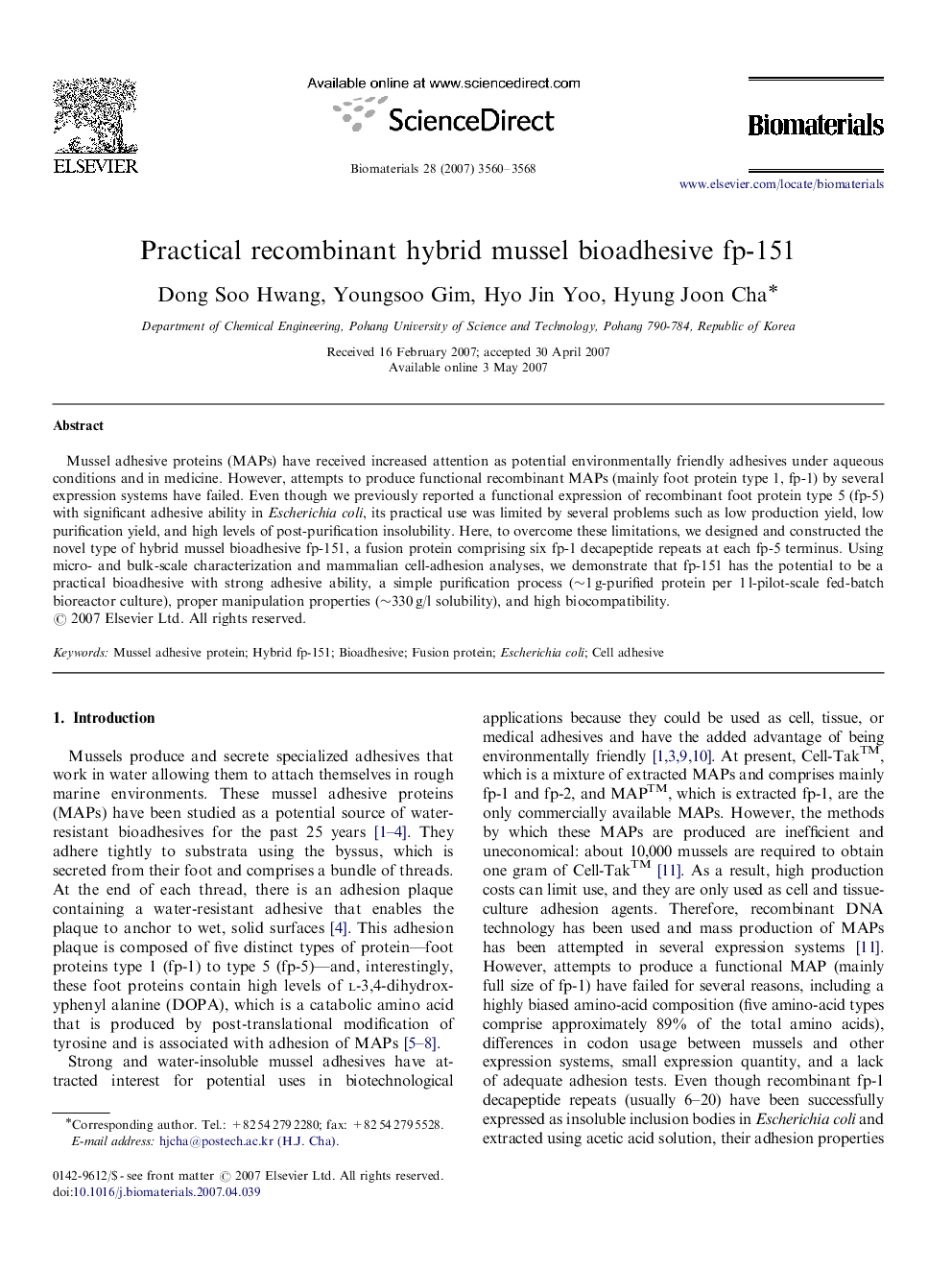| Article ID | Journal | Published Year | Pages | File Type |
|---|---|---|---|---|
| 10639 | Biomaterials | 2007 | 9 Pages |
Mussel adhesive proteins (MAPs) have received increased attention as potential environmentally friendly adhesives under aqueous conditions and in medicine. However, attempts to produce functional recombinant MAPs (mainly foot protein type 1, fp-1) by several expression systems have failed. Even though we previously reported a functional expression of recombinant foot protein type 5 (fp-5) with significant adhesive ability in Escherichia coli, its practical use was limited by several problems such as low production yield, low purification yield, and high levels of post-purification insolubility. Here, to overcome these limitations, we designed and constructed the novel type of hybrid mussel bioadhesive fp-151, a fusion protein comprising six fp-1 decapeptide repeats at each fp-5 terminus. Using micro- and bulk-scale characterization and mammalian cell-adhesion analyses, we demonstrate that fp-151 has the potential to be a practical bioadhesive with strong adhesive ability, a simple purification process (∼1 g-purified protein per 1 l-pilot-scale fed-batch bioreactor culture), proper manipulation properties (∼330 g/l solubility), and high biocompatibility.
